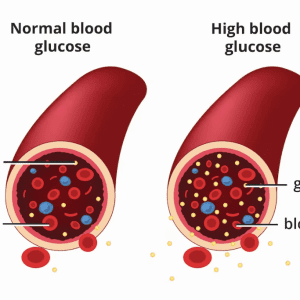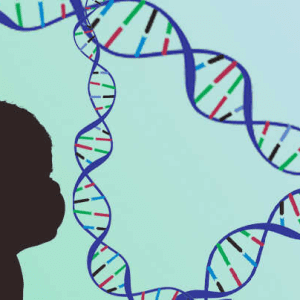Ever heard the phrase, “You are what you eat”? It’s more than just a catchy saying—science firmly backs it up. Food is more than just fuel for your body—it’s nature’s medicine. What you put on your plate can either support your body’s vital functions or compromise them. Surprisingly, many foods resemble the organs they benefit the most. From carrots improving vision to walnuts boosting brain health, nature has gifted us with foods that are both nourishing and healing.

In this article, we’ll explore how food can act as medicine by examining some fascinating examples. We’ll cover how carrots aid eyesight, kidney beans support kidney function, tomatoes benefit heart health, and more. Get ready to look at your pantry in a whole new light!
Carrots: Vision Support in Every Crunch
Carrots are more than just a crunchy, colorful addition to your meals—they’re a powerhouse for eye health. You’ve probably heard that carrots can help you see better in the dark. But how?
Video: Food is Medicine
- Rich in Beta-Carotene: Carrots contain beta-carotene, a precursor to vitamin A, essential for maintaining good vision. Without enough vitamin A, you might experience night blindness or other vision issues.
- Antioxidant Protection: The antioxidants in carrots help combat oxidative stress, which can harm eye cells over time.
- UV Protection: The orange pigment (carotenoids) naturally protects your eyes from harmful UV rays.
Including carrots in your diet is a simple yet effective way to support eye health and maintain sharp vision as you age.
Kidney Beans: Keeping Your Kidneys in Check

Ever noticed how kidney beans resemble—you guessed it—kidneys? This is more than just coincidence. Kidney beans are beneficial for renal health and overall bodily function.
- High Fiber Content: These beans aid digestion, reducing the risk of conditions like diabetes that can damage kidneys.
- Blood Pressure Regulation: Low in sodium and high in potassium, kidney beans help control blood pressure, minimizing strain on your kidneys.
- Plant-Based Protein: Unlike heavy animal proteins, kidney beans offer muscle support without overwhelming your organs with toxins.
Including kidney beans in your meals can enhance detoxification and support renal health, especially for those mindful of their kidney function.
Tomatoes: Your Heart’s Best Friend

Cut open a tomato, and you might notice it resembles the chambers of a human heart. It turns out, tomatoes are excellent for heart health.
- Lycopene Power: This antioxidant lowers LDL (bad cholesterol) and reduces the risk of heart disease.
- Vitamin C Boost: Tomatoes strengthen blood vessels, enhancing circulation and reducing cardiovascular strain.
- Stroke and Heart Attack Prevention: Studies show that regularly eating tomatoes can decrease the risk of heart-related incidents.
To keep your heart healthy and vibrant, make tomatoes a staple in your diet—whether fresh, cooked, or in sauces.
Sweet Potatoes: Balancing Blood Sugar and Pancreas Health

Sweet potatoes resemble the pancreas and, interestingly, support its function. They’re particularly beneficial for those managing blood sugar levels.
- Blood Sugar Stabilization: High fiber content in sweet potatoes helps prevent sudden blood sugar spikes.
- Anti-Inflammatory Benefits: Chronic inflammation can damage the pancreas, but the antioxidants in sweet potatoes help reduce this risk.
- Nutrient-Rich: Magnesium and vitamin C are essential for proper pancreatic function.
Adding sweet potatoes to your meals can support healthy digestion and stable blood glucose levels, making them a great choice for those mindful of diabetes.
Walnuts: Brain Food in a Nutshell

Ever noticed how walnuts look like miniature brains? It’s no surprise that they are incredibly beneficial for brain function and cognitive health.
- Omega-3 Fatty Acids: These healthy fats are essential for memory, focus, and overall brain health.
- Vitamin E Support: This vitamin fights cognitive decline, keeping your mind sharp as you age.
- Mood Boosting: Walnuts are linked to improved mood and reduced symptoms of depression due to their unique nutrient profile.
Snack on walnuts regularly to keep your brain agile and your thoughts clear.
Video: LET FOOD BE THY MEDICINE
Avocados: A Boost for Reproductive Health

Avocados not only resemble a womb but also offer significant reproductive health benefits, especially for women.
- Folic Acid for Fetal Health: This nutrient helps prevent birth defects and supports fetal development.
- Hormonal Balance: The healthy fats in avocados promote balanced hormone production and a stable menstrual cycle.
- Vitamin E for Uterine Health: Essential for improving fertility and maintaining uterine wellness.
For women looking to enhance reproductive health, avocados are an excellent dietary choice.
Ginger: Soothing Your Stomach Naturally

Ginger’s twisted, root-like structure mirrors the digestive tract and is widely known for its stomach-soothing properties.
- Nausea Relief: Ginger can help with morning sickness or motion sickness, reducing nausea and discomfort.
- Digestive Aid: It stimulates digestive enzymes, promoting smoother digestion and reducing bloating.
- Anti-Inflammatory Action: Ginger helps soothe inflammation within the digestive system, addressing issues like IBS or acid reflux.
Sip on ginger tea or add it to meals for natural digestive support
Citrus Fruits: Breast Health Champions

Oranges, lemons, and grapefruits resemble the glandular structure of breasts—and they offer surprising health benefits for this area.
- Immune Strengthening: Vitamin C helps protect breast tissue from oxidative stress.
- Antioxidant Defense: Citrus fruits combat free radicals, potentially lowering breast cancer risk.
- Hormonal Balance: Limonoids in these fruits help maintain healthy hormone levels and reduce breast tumor risks.
Incorporating citrus fruits into your diet can be an easy and tasty way to support breast health.
Why Food as Medicine Matters
The concept of food as medicine encourages a whole-food, nutrient-rich diet instead of processed, unhealthy choices. It’s about understanding that what you eat can either fuel your body positively or contribute to health issues.
By choosing foods that naturally support your organs and systems, you take an active role in your health and longevity. You’re not just eating—you’re healing.
Conclusion: Embrace the Healing Power of Food
The notion that food is medicine is more than just a saying—it’s a reality. Every bite you take has the potential to support or harm your health. From carrots enhancing vision to walnuts boosting brainpower, incorporating these natural powerhouses into your daily meals can significantly impact your well-being.
By making informed food choices, you’re not just satisfying your hunger—you’re fueling your body for a healthier, longer life. So, the next time you’re at the grocery store, think about the benefits each item can bring to your body. Your health is truly in your hands!


